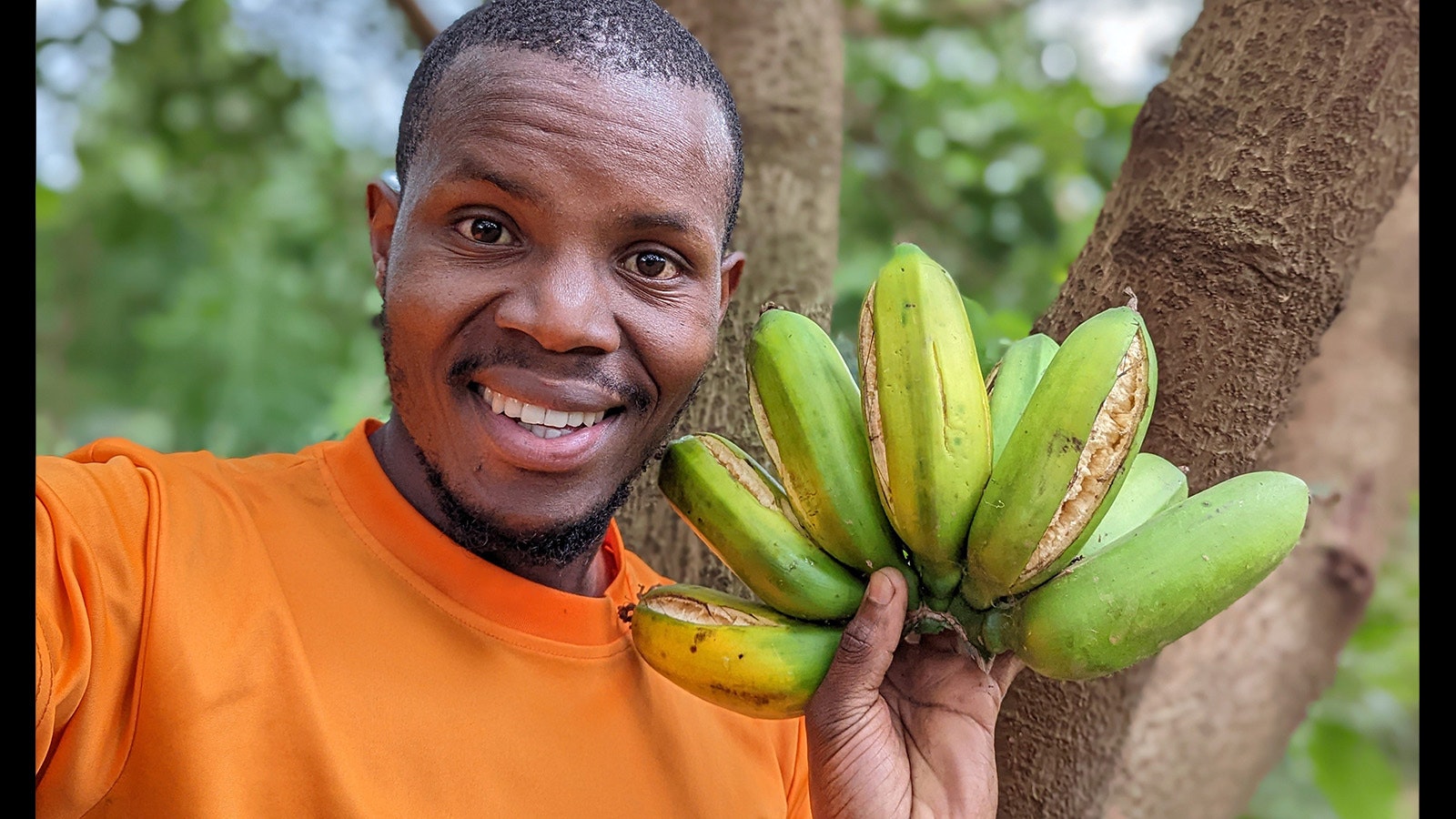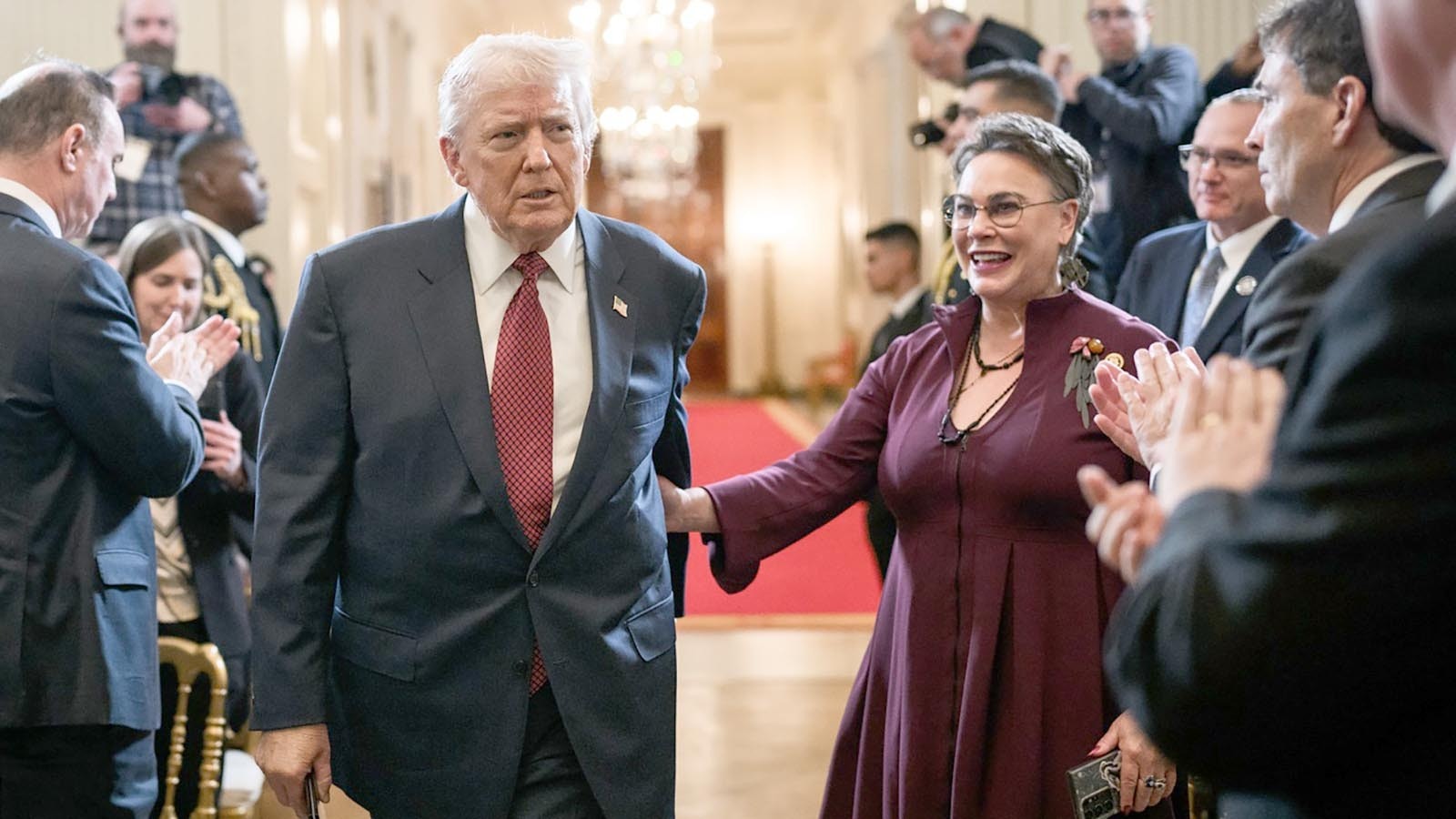Jusper Machogu, a farmer in Kenya, Africa, wants people who think Africa shouldn’t develop with fossil fuels to see what a low-carbon lifestyle is really like.
He and his family live it every day, and he told Cowboy State Daily that people, especially those of the West, don’t really grasp what it means not to have access to energy.
In an effort to combat global emissions, wealthy nations are trying to discourage African countries from using fossil fuels, which Machogu said that will keep Africa in poverty.
That’s why he’s offering an educational tour of his low-carbon lifestyle, which he calls an internship, to climate activists or anyone else who wants to see the struggles Kenyan farmers endure as a result of not having access to fossil fuels.
Educating Activists
The idea came to him after seeing how little climate activists understand about the impacts of the energy policies many of them promote for Africa.
There are six people in Machogu’s household, and the family uses, on average, about 14 to 16 kilowatt hours of electricity per month. The average American household, which has about three people, averages using 886 kilowatt hours per month. A home refrigerator alone will consume around 50 kilowatt hours per month.
Machogu said he regularly comes across articles about African villages getting access to electricity as a result of a donation of solar panels, which is presented as evidence that Africa could just skip fossil fuels altogether and go right to renewable energy.
“These people imagine there's a lot of sunshine in the tropics around the equator,” he said Saturday evening, with a thick, cloudy layer over his head. He said days go by without sunshine.
Hypocritical
Machogu said he’s frustrated with the way world leaders like President Joe Biden’s Special Presidential Envoy for Climate John Kerry and U.N. Secretary Antonio Guterres try to talk African leaders out of using fossil fuels to develop.
In 2021, Germany paid South Africa $800 million not to use coal, while the European country has been increasing its own coal consumption.
Machogu said it’s hypocritical for wealthy nations that had the privilege of developing their economies with fossil fuels to turn around and try to stop Africans from doing the same.
Climate activists in the West, many living privileged lives in wealthy countries, hear this rhetoric and think Africa can just do without fossil fuels, Machogu said.
So, he started reaching out to popular climate activists on Twitter to invite them to come to Kenya for an “internship” that would educate them to overcome what he says is an incredible amount of ignorance.

No Takers
It originally started out as a joke. Machogu never expected any climate activists would take him up for the internship, but it was fun extending the offer.
“I told these people, ‘Why don’t you come? Why don’t you come try farming without fossil fuels? Why don’t you try farming without modern fertilizers?’” Machogu said.
Modern fertilizers are derived from natural gas, and producing them without it is enormously expensive.
So far, he’s invited Just Stop Oil, which is the group famous for throwing soup on paintings and blocking traffic to try to force people to give up fossil fuels. He’s extended the offer to Extinction Rebellion, which uses many of the same tactics as Just Stop Oil.
He extended the offer to climate activists Mike Hudema, Sophia Kianna and Greta Thunberg, as well as climate scientists Andrew Dressler and Michael Mann.
So far, none have taken him up on the offer.
From Joke To Tour Guide
While climate activists aren’t interested in his “internship,” he said he has received serious interest in the program. Two people are planning to come to Kenya and learn about farming without fossil fuels.
Since people with a sincere desire to learn from him are expressing interest, he put together a full itinerary for the trip, including the fees he would charge.
The tour would feature trips to various regions in Kenya, including the Rift Valley, to see how different crops are produced in the country without diesel-powered machinery.
The tour includes experiences in what it takes to fetch water from the river, which often requires miles of walking or hiring someone with a motorbike to haul it.
The tour-goers will see firsthand what it’s like to plant, weed and harvest crops by hand on plots of land that would be considered miniscule — a few acres — by American farming standards.
Visitors will also experience what it’s like cooking without fossil fuels. While most people cook on an open fire as part of a relaxing camping trip, Kenyans don’t have any other options. They also have to produce their own charcoal for fuel, which is a labor-intensive process by itself.
While it’s a lot of manual labor, Machogu said the tour is meant to be fun.
“It will be like a great chance for people to learn. And it will be mostly fun — learning and fun,” he said.
Degrowth Privilege
Machogu said the tour is open to everyone, but he really hopes the people who advocate for Africa to develop its economies with carbon-free energy will come and give it a try.
He said he is especially puzzled over a movement gaining popularity in Europe called Degrowth, which views adopting greater amounts of poverty and deindustrialization as a means to protect the planet and reduce population.
Only in a privileged world that has never truly experienced poverty, Machogu said, would such a movement take hold. He said they’d change their mind if they’d take his tour.
“We don't have laundry machines or dishwashers. We don't have the microwaves. We don't have refrigerators. We don't have those, and we cannot afford them until we become rich. So how are we going to become rich? We need lots of energy,” Machogu said.





